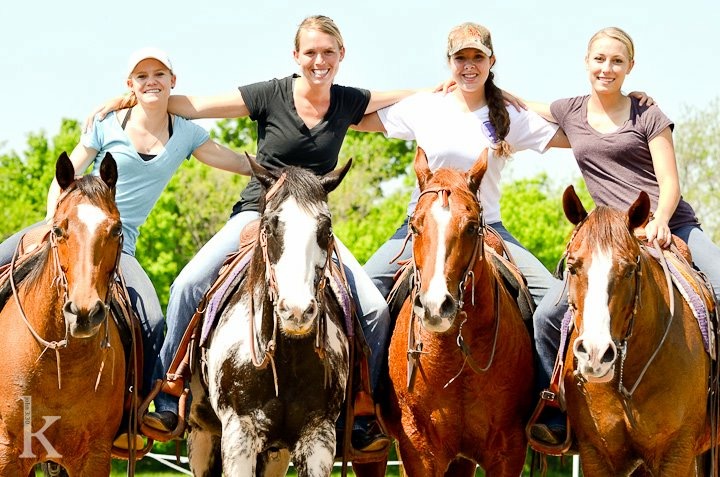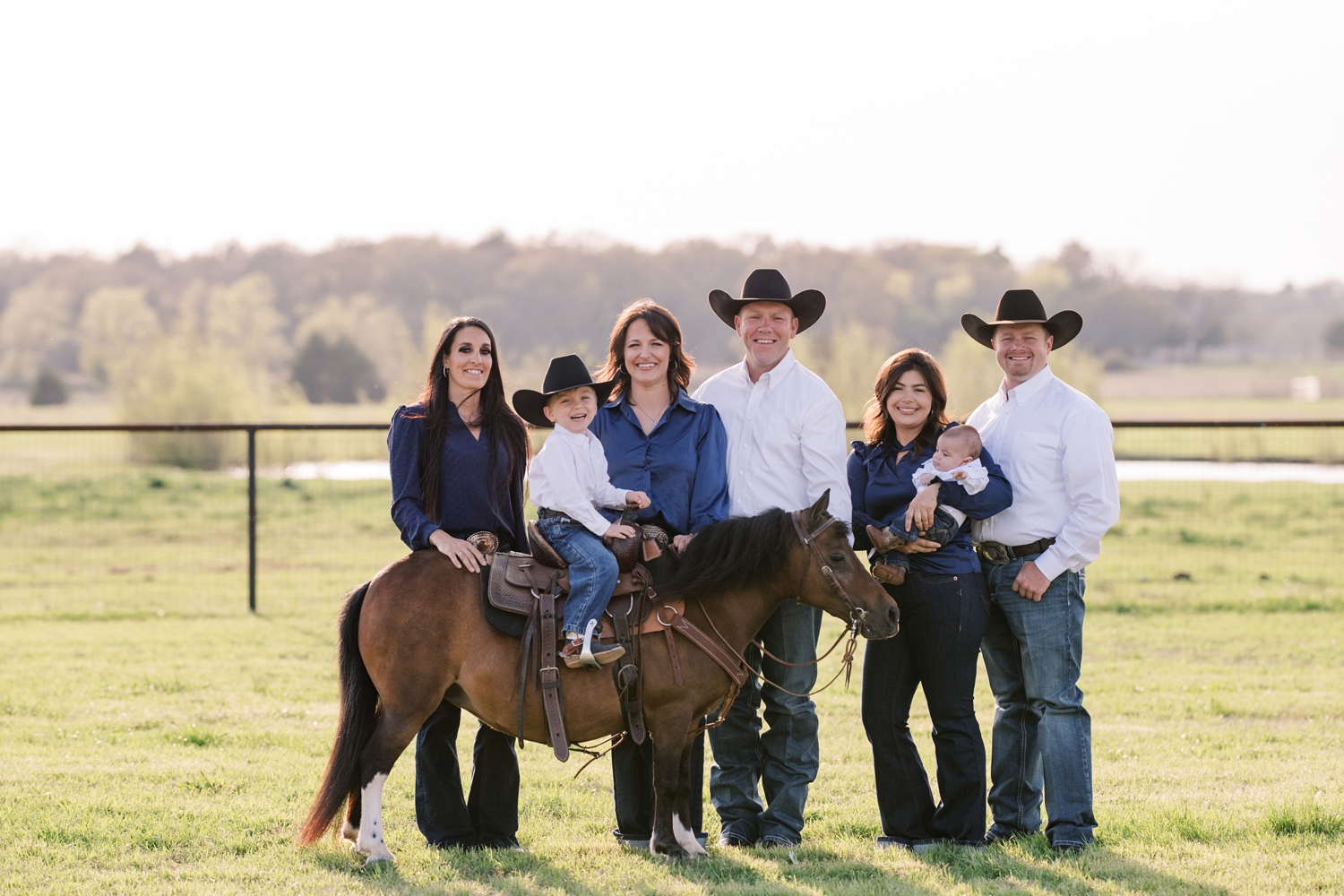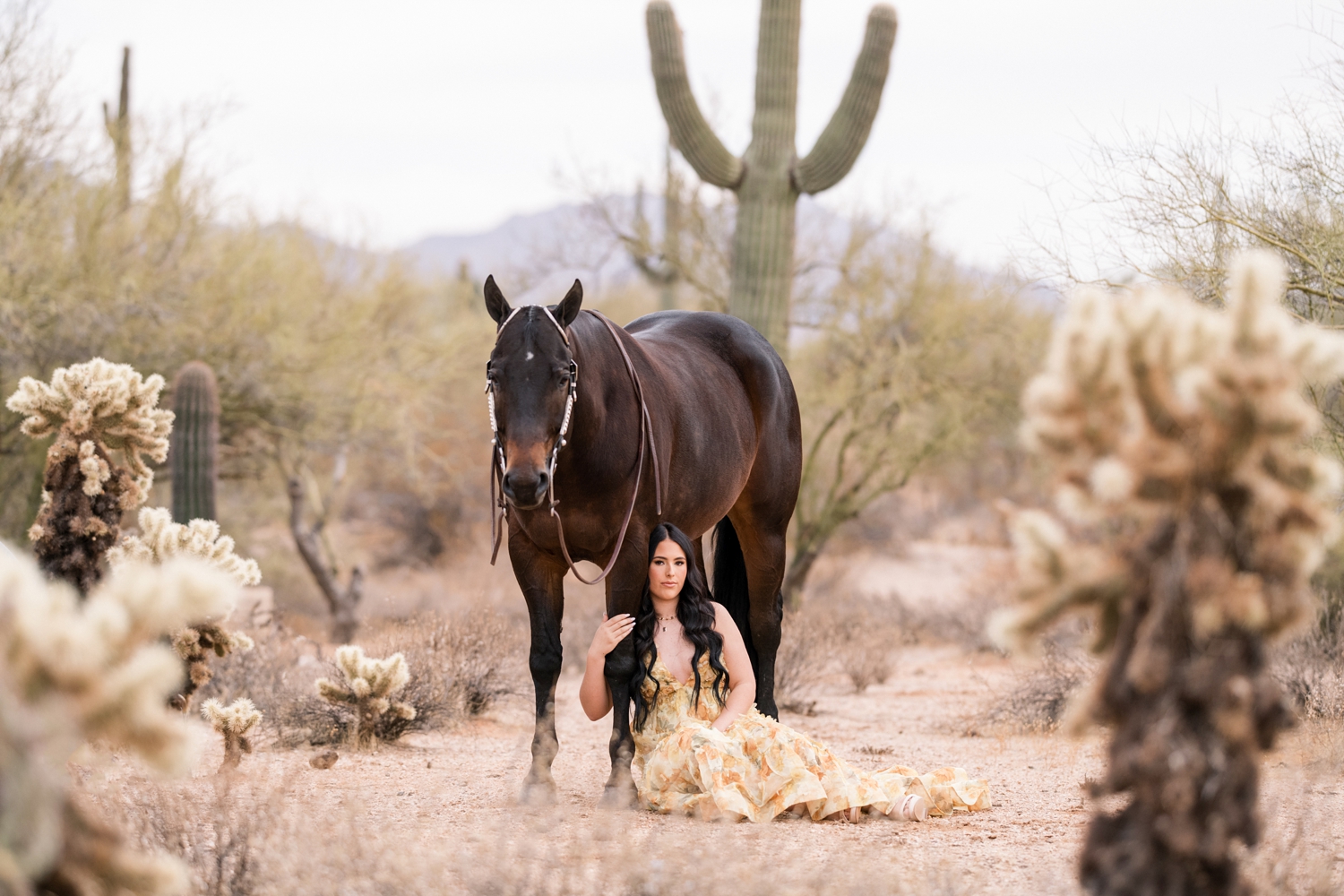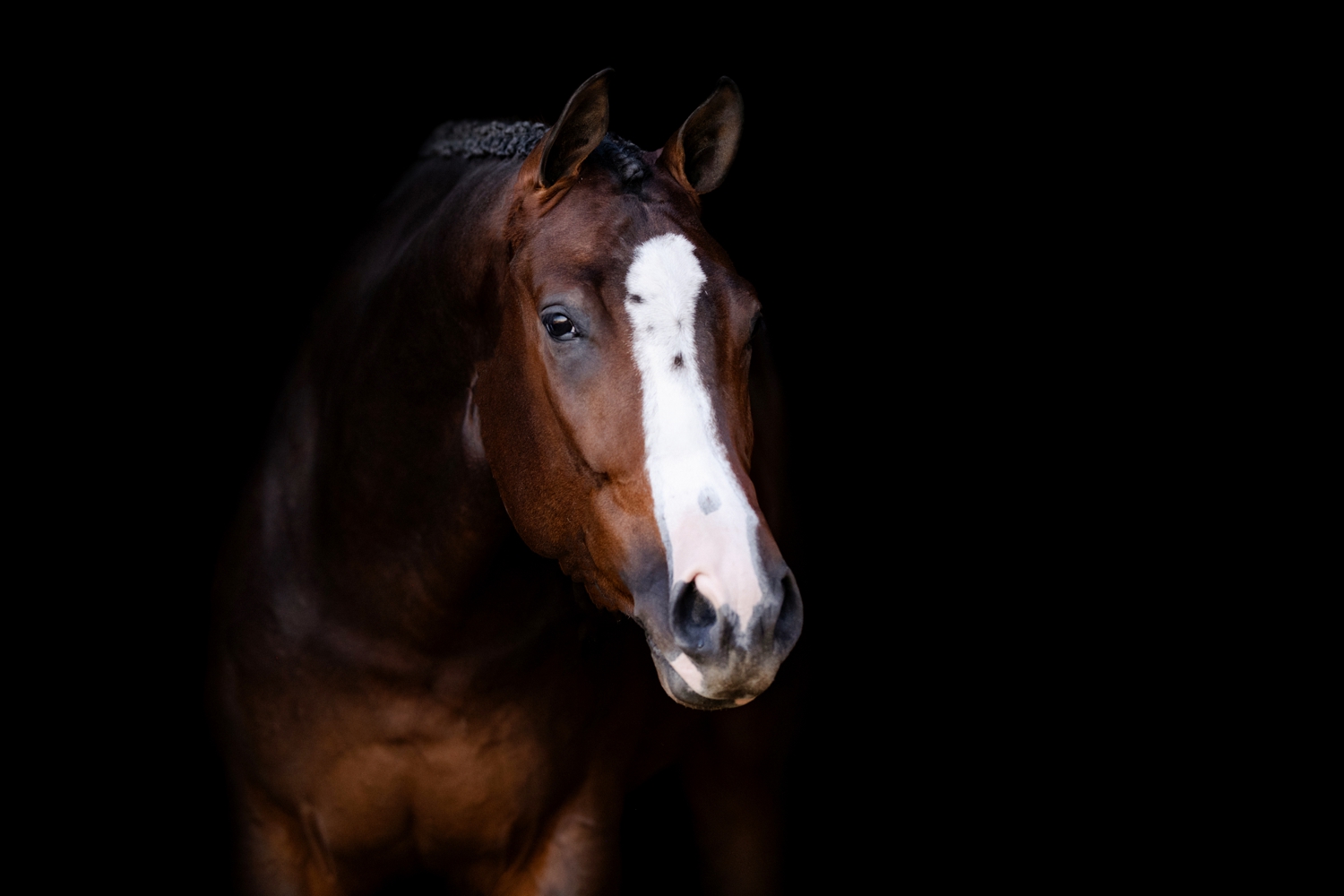
The mission statement of the National Collegiate Equestrian Association (NCEA) is to provide collegiate opportunities for female equestrian student-athletes to compete at the highest level, while embracing equity, diversity and promoting academic and competitive excellence. The NCEA provides an incredible, once-in-a-lifetime opportunity to compete for a university in a varsity setting. In my opinion, the NCEA does not get the credit or recognition it deserves, and it can be difficult and confusing for youth riders to understand their options for riding in school.
Last week, I asked four extremely accomplished young women to tell me more about their experience as an NCAA Division 1 athlete. These are women who have my admiration and utmost respect as horsemen, and who I watched achieve some incredible things during their undergraduate years. Each one comes highly decorated, achieving the highest honors in their respective disciplines, while balancing a tough academic schedule.
My hope is that their words below would encourage the high school athletes exploring their options, and aid the freshmen entering their first week of school and practice.
1. Tell me about yourself

Alexie Estrada
Bakersfield, CA
Texas Christian University
Graduated cum laude in 2013 with a B.S. in strategic communication and a business minor. Fun fact, I am a first-generation college graduate. I am very grateful that my dedication and passion for showing horses led me to the golden ticket of a four-year education at a very reputable private university. I have two favorite riding accomplishments that happened pre-college. One was winning the 14-18 All Around High Point at the AjPHA Youth World Championship Show in 2009 and the other was capturing the Number One 14-18 title on APHA’s Top 20 that same year. All I ever dreamed of was winning just one of those titles. It was very surreal to achieve both in the same year – especially the Number 1 title because I didn’t show after the World Show. My favorite accomplishment on the TCU equestrian team was being named Big XII Horsemanship Rider of the Year alongside Katy Krshka. The honor was a complete surprise and was an award that I was very humbled to receive as a representative of TCU. The year I was presented with this award was also TCU’s first season in the conference.

Carey Nowacek
San Antonio, Texas
Texas A&M
My favorite riding accomplishment pre-college was winning the 2010 Youth World Championship in Horsemanship. I rode for Texas A&M and was an Education Major. My favorite riding accomplishment on the team was winning 3 National Championships, 2010, 2011 and 2012.

Indy Roper
Hobart, Indiana
Auburn University
My favorite riding accomplishment pre-college was winning the World Championship in Hunter Hack and being a Member of USA Youth World Cup team. I graduated from Auburn with a degree in Finance. My favorite riding accomplishment at Auburn was being a two-time National Champion.

Maria Salazar
Portland, Oregon (Go Ducks!)
University of Georgia
My favorite riding accomplishment pre-college was winning the Novice Youth Western Riding at the AJPHA world show. I attended the University of Georgia where I competed on the Western Horsemanship team while also majoring in Consumer Economics. While on the team, my favorite accomplishment was winning Nationals my freshman year. From an individual standpoint, my favorite accomplishment was earning first team all-American accolades in horsemanship. I am currently the ranch office manager for a cutting ranch in Oregon.
2. How did you decide on a college?
AE: It definitely wasn’t easy. TCU felt like the perfect fit for me because I really wanted a close connection to my teammates and my classmates. I didn’t want to be a number. At the time I signed with TCU, the Western team was a small and mighty tight-knit group of very talented riders and I really loved that class sizes averaged approximately 20-27 students. With my entire family in California, knowing that I had friends and a home away from home just an hour away from TCU’s campus was also a comforting perk.
CN: I had my mind set on a certain college before I visited any schools. My parents suggested that I still keep an open mind and visit a few other colleges, and A&M was actually my last visit. I almost backed out of the visit honestly. When I got to College Station and met my future teammates and saw the campus and atmosphere, I knew it was where I was supposed to be. I can’t really say “how” I decided, I just knew the moment I arrived that I was home in Aggieland.
IR: I was reluctant to ride in college because majority of the colleges that offered the program were predominantly in the south. However, I attended Auburn University and truly was taken back by the university, educational opportunities and the Auburn spirit.
MS: It wasn’t until winter of my senior year of high school when I realized I even wanted to ride on an equestrian team. I (or my parents) had already paid a housing deposit for me to attend the University of Oregon. I was frantically sending out videos and making official and unofficial visits to schools. It was stressful to think that this decision could affect the rest of my life – career, relationships, new home, etc. I can remember getting to Georgia and going to the barn as they were preparing for a meet the next day and having that “feeling.” As nervous and awkward as I felt, I knew this was where I was supposed to be. For a TMI story, I remember hearing one of the girls burp really loudly while braiding a horse and everyone laughing. I am a very gross, raunchy person, and I immediately knew I liked these girls.
AE: My favorite part about riding for the team was experiencing so many different horses. I really enjoy figuring horses out, connecting to find their potential and riding to the best of my ability to show that.
Becoming best friends for life with my teammates has also been a great return on investment.
CN: My favorite part about riding for the team was having the opportunity to ride for something bigger than myself. Growing up I showed on the AQHA circuit and was always wanting to win for me. Being on a team, you are riding for your teammates and your school. It’s such a great feeling having that behind you.
IR: My favorite aspect of the team was the camaraderie amongst girls. It truly is humbling to ride for a prestigious university and teammates that you spend countless hours with working at the barn, in study hall and the weight room.
MS: Now that I am a few years removed from the team (how did that happen so quickly?), when I look back, I honestly don’t remember any of my scores or stats for the years. However, I can remember laughing hysterically on what seemed like the longest bus rides ever, playing foul rap songs for our sweet volunteer Reining coach at nationals, and freezing our bums off in South Dakota. I loved having 70 girls that were more like sisters who I could call at any second to talk with, or cry to, or go to Starbucks or fro-yo with. Without a doubt, my teammates were my favorite part about being on Georgia’s team.
4. What was the most challenging part of riding for the team?
AE: For me, keeping a balance and knowing how to focus your energies was the most challenging part of riding for the team. I would say that it took me a good two years before I sort of figured this out.
My freshman and sophomore year, I put a lot of pressure on myself striving for all around perfection and didn’t ask for much help. Sometimes, I let my school stress affect how I practiced or how I competed. That was never a good thing. My junior year, I realized I needed to separate my school and athletic performance and also allow for more give and take in my daily routine. I have my best friend, former teammate and former roommate Carrie Schimpff to thank for helping me realize this. By the time senior year rolled around, I found myself laughing at how I was as a freshman. I felt way more mature by this time and realized that the team wasn’t even about me. It was about being a solid leader and setting a strong example for my teammates to remember.
CN: The most challenging part of riding for a team is balancing everything. Between class, workouts, practice, and studying you really have to be on top of everything. It gets very crazy at times, but over time you get it all figured out.
IR: The most challenging aspect is time management. It is essential that your education comes first, but it was hard balancing the role as an athlete and student. Also, each horse presents their own challenge. Learning to treat each horse individually and trying to achieve the most out of the horse that day was always difficult.
MS: The most challenging part for me was balancing riding, school and life. I think a lot of riders tend to be Type-A perfectionists, myself included. Being forced to manage so many activities and requirements and maybe not be able to do one of them perfectly taught me so much about life and being an adult (I’m still working on that whole adult thing).
5. What did you wish you knew before you chose a school (what would you tell your 17 year old self now)?
AE: Tour the schools that pique your interest. Explore the campus and understand the courses offered. Attend a team practice to see the coaching and team dynamic in action. Prepare a lot of questions and ask every single one of them. Some of these are basic, but if I could rewind time I would have asked:
-
- What the horses are like and how they are cared for
- What the team’s objectives are
- How the team plans to accomplish objects in the next season and in the long-term
- What practice is like and what the coaching style is
- What makes a particular school/team better than any other
- How much time is spent at the barn, at practice and at mandatory team activities
- What a typical day and a typical year is like for an equestrian student athlete
- How the team prepares before games
- What team building activities are in place
- What skills and attitude it takes to make the roster
- If there are any unique offerings for student-athletes
- What the season schedule is like and how it balances with academics
- How the team is recognized on campus
- What scholarship opportunities are available and what are the terms
- What requirements and expectations do student athletes have to meet and uphold
CN: Before choosing a school, I wish I had known to not be set on one school right away. Be sure to keep an open mind and look at lots of different schools! You never know where you may end up!
IR: I would tell myself to be open minded to universities, campuses, and coaches. Also, to choose a school that can offer you a premiere education and athletically an opportunity to be successful in the arena. Most importantly when you attend the university on your visits try to envision yourself on campus, always ask could I see myself here next year. Don’t be swept up in the riding aspect because you need to be happy at that university.
MS: I would tell myself to take a chill pill. It is without a doubt a huge decision. However, I truly believe that everything happens for a reason and will work itself out. So I would say to take a deep breath, visit as many schools as possible, and try to imagine if you can really see yourself at each school.
6. What did you wish you knew before your first practice (what would you tell your 18 year old self now)?
AE: Four things: Take it easy. Be a horseman. Understand the horse you’re on and figure out his strengths. Just ride. During my first practice, I went out there thinking I had to prove myself and be completely flawless. I ended up overriding myself deeper and deeper into a hole. I felt really frustrated and, even more so, really embarrassed that I just made a fool of myself. Take it easy and ride with an open mind. Typically, these horses are just coming back from either a summer vacation or just a few days of light work. Use the first practice to understand the horse you’re riding, determine what he’s good at, observe your teammates and ask the coach and/or team veterans what kind of cues really work for the horse. It’s a great opportunity to acquire a lot of intel and get the basics figured out before its time to grind. When I found myself struggling, it always helped to just take a breath and let my natural ability take over. I got a lot more accomplished that way.
CN: I wish I knew that it wasn’t as scary as I thought it would be. Your upperclassmen teammates really want to help you and see you succeed. There is no reason to be nervous before practice. Just ride like you know how to.
IR: Before my first practice I wish I knew that like athletes, collegiate horses have certain capabilities. You can only expect so much from yourself and that horse. The horse is only so talented it is our job as riders to exploit their strengths and hide their weaknesses in the show pen. As a freshmen, be patient. There is a learning curve and it takes time to develop the riding style it takes to be successful on collegiate horses.
MS: Being a Type-A perfectionist, I wish somebody had let me know that I actually didn’t know everything. I wish I had known that there are a few really hard months (or years!) of riding and adjusting to a new format. Riding the school horses is so different from riding your sweet youth horse. I remember a senior who I looked up to SO MUCH and still do, Alicia Shrum (now O’Bryan), kept telling me that “one day, it will just click”. I had no idea what she was talking about, but it really did just click one day. You figure out how to manipulate your riding abilities to fit the horse, as opposed to making the horse fit you. So I would tell anybody going into their first practice to be patient and one of these days, it will just click.
7. Tell me about your freshman year on the team.
AE: It was a whirlwind and a huge reality check! I was majoring in biology as a freshman and I traveled with the team to several away games. My first eye-opening moments happened early on in my first semester. We traveled to compete against the University of South Carolina, Auburn University and the University of Georgia all in one weekend. My first biology test was scheduled for Tuesday following our return. Our 6:00 a.m. workouts were that morning and my test was shortly thereafter. I tried to prepare as much as possible before our departure, I studied as much as I could on the trip and I really buckled down the second we made it back to Fort Worth. Ultimately though, I felt really unprepared and very stressed out. I was 120% certain that I was going to fail and that the world was going to end. But, neither of those things happened. Take my counsel, definitely live it up your freshman year. Take all the firsts and all the challenges in stride because it does get easier. Meet as many people as you can, use your resources to the fullest, build relationships with your professors and advisors, really get to know your teammates and lean on them, too!
CN: Freshman year was tough, definitely, but with my team and coaches I got through it. And I am so much stronger because of it. Having my teammates and coaches to lean on was such a blessing. That’s what I would tell girls, don’t be worried about Freshman year, you have the biggest and best support system.
IR: My freshman year was the year I learned the most. It’s important to find a mentor on the team that can help educate you on what it takes to be successful in the arena, but also to get through some of the struggles that the team offers. A mentor can help push you through some of the difficult things every freshmen goes through.
MS: Put every emotion into a bottle and shake it and that was me. You’re away from home (probably for the first time) and for me my family was on the other side of the country. It’s a lot to figure out how to deal with school, riding, and for me, a sorority. That being said, it was the most fun year of my life. Even when things get hard, you have such a great support system in your teammates, coaches and athletic association.
8. Do you have any other advice for girls interested in NCEA?
AE: If you’re in limbo as to whether or not to ride on a team, really take the time to draw out what’s important to you and evaluate accordingly. What’s your why? Or, do you even have one? The team is like a full-time job so the time commitment, effort and passion required is nothing to take lightly. Factor in what the school offers you academically, too. I really emphasize asking questions and experiencing as much as you can before you make a final decision. If you decide to join a team, know that you are probably going to have lots of moments when you think, “Oh my gosh! I have no idea how I’m going to get all of this done and perform to the best of my ability in school and on the team.” Never fear those thoughts. It’s tough, but you always get through it. You also have teammates, mentors, tutors and other resources within your reach. You just have to speak up and ask for help when you need it. Probably more than anything, I am so grateful for those times I had to dig deep and go beyond my perceived threshold. I believe that my experience as a student-athlete only further refined my discipline and work ethic. As I learned first-hand, the road to greatness is never the easiest one with flat terrain. I have absolutely no regrets about riding for TCU and shaping up the experience to be the best it could be. I am a very proud to be a Horned Frog for life.
MS: Research! Talk to girls who are currently on NCEA teams or who were on teams. Talking to girls who had ridden on teams is what sold me on riding in college. They are also the best resource for advice on the process.

BONUS answers from Kirstie Jones:
Riding on the team will stretch you. You will come out a stronger horsewoman, athlete, student, teammate, intellectual and friend. You will face challenges you have never seen, fail at things you have never failed at, and achieve victories that are bigger than yourself. You will have endless opportunities to discuss victory, adversity, teamwork and experience during job interviews.
I think it is extremely important to recognize that your years on the team will be tough. Academically. Personally. Mentally. Physically. Similar to a good workout, I think the team will break and tear your proverbial muscles, you’ll be tender, sore and in pain, but you will end up stronger after a recovery period. It is essential to be both a leader and a servant. Take when you need it. Give everything you can. Take care of yourself.
The only goal you should have is to leave the establishment better than you found it.
Are you a former NCEA athlete with advice to share? Email kirstiemarie@me.com to be published in round 2!




